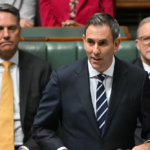Complex project management: what goes wrong?
A simple breakdown in stakeholder relations can bring multi-million dollar international projects to their knees. Leaders from government and industry alike need to develop their skill sets in this area.
There are many factors that can lead to a complex project coming in late, over-budget or to an unsatisfactory conclusion, including:
· Poorly defined requirements from the outset.
· Decision making processes that are mitigated by public relations pressures are another; for instance when a project should be cancelled but for political reasons pushes ahead.
· Institutionalised procurement practices. If you have a slavish adherence to an old way of doing things it can deprive you of the agility required to be successful in complex project management.
But the breakdown of good stakeholder relationships is one of the most common areas where complex projects come to grief; so improving your organisations skill set in this area should be a priority. But non-technical risks are inherently difficult to analyse and foresee; is the skill of knowing what you don’t know something that can that be taught? Yes, I believe it is, albeit to differing degrees to different personalities. The Australian Department of Defence course in complex project management is an endeavour in this field which has proven very successful.
Sound complex project management skills are applicable across all executive management, whether in the public, private or community sector.
In an increasingly globalised economy it is becoming standard for complex projects to be international in scope, so more awareness is needed of how to prevent differences in culture and language creating issues that breakdown stakeholder relations.
Internationally there is an increasing appetite for skills in this area. The UK cabinet office are taking a whole of government view to complex project management. The establishment of the UK government major projects authority is a good example of them taking that on.
Do you have a story to share about how a CPM approach to stakeholder relations helped you achieve a good result?
Stephen Hayes is the Chief Executive Officer of the International Centre for Complex Project Management, an independent international not-for-profit company that aims to better enable the global community to deliver complex projects and manage complexity. He is working extensively in the international community with other government agencies and corporations to deliver this new global resource. Stephen is also the Chair of the International Complex Project Management Task Force and Chair of the International Complex Project Management Research Council.
Stephen Hayes MBE is the Chief Executive Officer of the StrategyDotZero Enterprise Platform. He is internationally recognised as the founding Managing Director and Chief Executive of the International Centre for Complex Project Management. He was also Chair of the International Task Force that developed the internationally acclaimed report ‘Complex Project Management – Global Perspectives and the Strategic Agenda to 2025’ and the founding Chair of the International Complex Project Management Research Council. Building on his extensive industry expertise, Stephen continues to support government and industry in the successful delivery of complex endeavours including the transformation of strategy execution and business performance.












